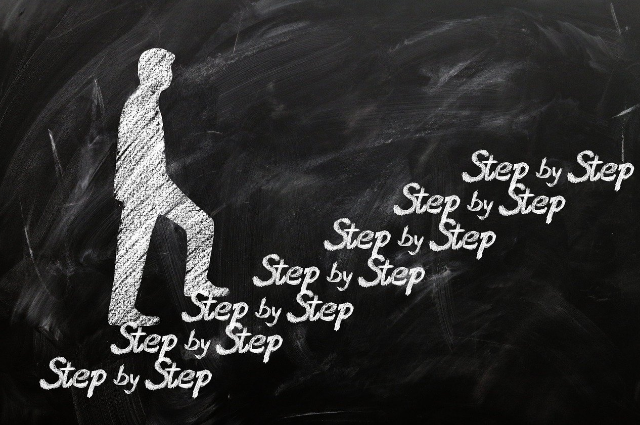
Introduction
Failure is often perceived negatively, yet it holds significant potential for growth and achievement. By examining failure as a crucial element in the journey to success, one can appreciate its true value. This article will explore the multifaceted role of failure in achieving success, substantiated with examples and a focus on clarity and brevity.
Learning from Mistakes
Failures provide invaluable lessons that success cannot offer. Each mistake exposes weaknesses, gaps in knowledge, and areas for improvement. For instance, Thomas Edison, the inventor of the lightbulb, failed thousands of times before achieving success. His failures taught him what did not work, ultimately guiding him to the correct solution. By analysing and understanding these errors, individuals can refine their strategies and approaches, thereby increasing their chances of success.
Building Resilience
Experiencing failure cultivates resilience, a crucial trait for achieving long-term goals. Resilience enables individuals to recover from setbacks and maintain focus on their objectives. Take the example of J.K. Rowling, whose manuscript for “Harry Potter” was rejected by multiple publishers before becoming a global phenomenon. Her perseverance in the face of repeated rejection exemplifies how resilience forged through failure can lead to extraordinary success.
Enhancing Problem-Solving Skills
Failures compel individuals to think critically and develop innovative solutions. Confronting obstacles requires creative problem-solving, which is honed through experiencing and overcoming failure. Consider the case of Steve Jobs, who was initially ousted from Apple, the company he co-founded. This failure led him to establish NeXT and Pixar, both of which thrived and eventually contributed to his successful return to Apple. His journey illustrates how failure can sharpen problem-solving skills and lead to future achievements.
Encouraging Innovation
Failure often sparks innovation by challenging conventional thinking and encouraging experimentation. Innovators must embrace the possibility of failure to explore new ideas and approaches. The story of James Dyson, the inventor of the Dyson vacuum cleaner, underscores this point. Dyson created over 5,000 prototypes that failed before perfecting his design. Each failure provided insights that propelled his innovation, ultimately revolutionising the vacuum cleaner industry.
Strengthening Character
Failure plays a significant role in shaping character and building virtues such as humility, patience, and determination. These qualities are essential for sustained success. Abraham Lincoln, who faced numerous electoral defeats before becoming one of the most revered Presidents of the United States, is a prime example. His persistence in the face of repeated failures helped mould his character and prepared him for his eventual success.
Developing Empathy
Experiencing failure fosters empathy by allowing individuals to understand and relate to others’ struggles. Empathy enhances leadership and teamwork, contributing to overall success. Howard Schultz, the former CEO of Starbucks, grew up in poverty and faced numerous business setbacks. His background and experiences with failure cultivated a deep sense of empathy, which he channelled into building a company culture centred on respect and compassion.
Promoting Personal Growth
Failure acts as a catalyst for personal growth by pushing individuals out of their comfort zones and encouraging self-reflection. It prompts a reassessment of goals and strategies, leading to personal and professional development. Oprah Winfrey’s early career was marked by setbacks, including being fired from her job as a television reporter. These failures drove her to refine her vision and ultimately become a media mogul, illustrating how failure can fuel personal growth.
Motivating Through Challenge
Failures serve as powerful motivators by presenting challenges that drive individuals to push their limits. The competitive nature of overcoming failure can ignite a relentless pursuit of excellence. Michael Jordan, widely regarded as one of the greatest basketball players, was cut from his high school basketball team. This failure motivated him to work harder and improve his skills, ultimately leading to an illustrious career. His story demonstrates how failure can inspire exceptional effort and achievement.
Reinforcing Focus on Goals
Failure refines focus by eliminating distractions and clarifying priorities. When faced with failure, individuals reassess their goals and concentrate on what truly matters. The journey of Walt Disney, who faced bankruptcy and multiple business failures, highlights this aspect. Each setback helped Disney narrow his focus on his passion for animation, culminating in the creation of a world-renowned entertainment empire.
Building a Stronger Foundation
Failures provide the opportunity to build a stronger foundation for future success. By addressing weaknesses and solidifying strengths, individuals create a more robust base from which to launch their endeavours. The story of Colonel Harland Sanders, the founder of KFC, is a testament to this. After numerous failures in his career, Sanders refined his fried chicken recipe and franchising model, leading to the global success of KFC. His perseverance through failure enabled him to construct a solid foundation for his business.
Creating Opportunities for Reinvention
Failure often serves as a catalyst for reinvention, allowing individuals to redefine their paths and explore new opportunities. It encourages a fresh perspective and a willingness to adapt. Richard Branson, the founder of the Virgin Group, experienced multiple business failures, including the collapse of Virgin Cola and Virgin Cars. These setbacks prompted him to reinvent his business strategies and expand into other industries, such as aviation and space travel. Branson’s ability to reinvent himself in the face of failure highlights how it can lead to new and exciting opportunities.
Conclusion
Failures are not the end but rather stepping stones to success. They offer lessons, build resilience, enhance problem-solving skills, encourage innovation, and shape character. By embracing failure, individuals can grow, empathise, and remain focused on their goals. Historical and contemporary examples demonstrate that failure is an integral part of the journey to success. Recognising and utilising the potential of failure can transform setbacks into powerful catalysts for achievement.
